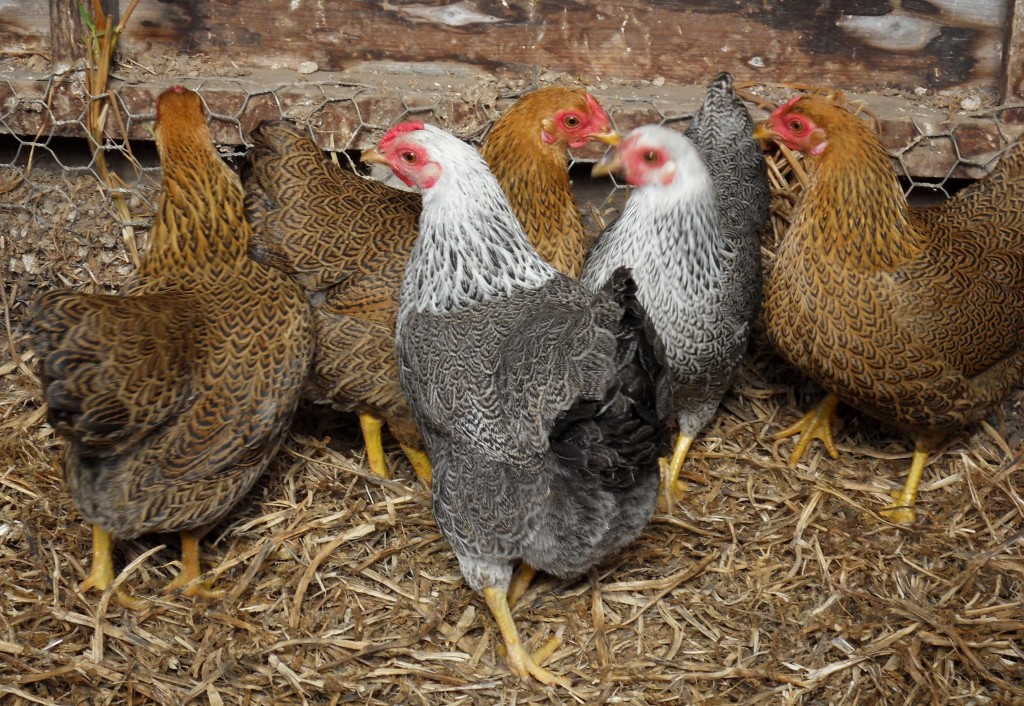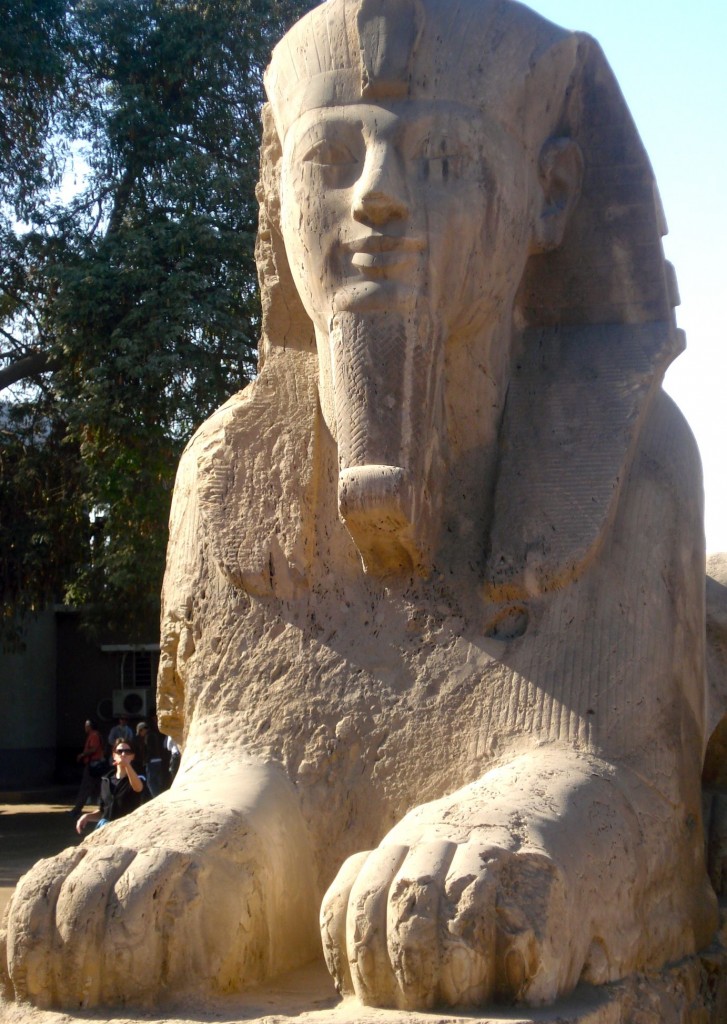![]() Dear 7E,
Dear 7E,
Of course you’re not really peasants. You don’t have to work all day every day in the broiling sun, you don’t wear little coarse linen kilts, you don’t live in mud-brick houses.
All the same, for the purposes of this assignment, I want you to stand in a peasant’s shoes. (Though actually, they rarely wore shoes – maybe some papyrus sandals, but nothing very substantial.) I mean, imagine yourself in this role. Imagine the difficulties, the stresses and the hard-won pleasures of your life. Show me your historical empathy.
I want to sense the peasant’s sweat on your assignment, in a purely figurative sense. But don’t forget that you must blend your imaginative empathy with genuine and authentic historical information.
I hope the links below will help you in this task.
Kind regards, Ms Green
Download your assignment here…
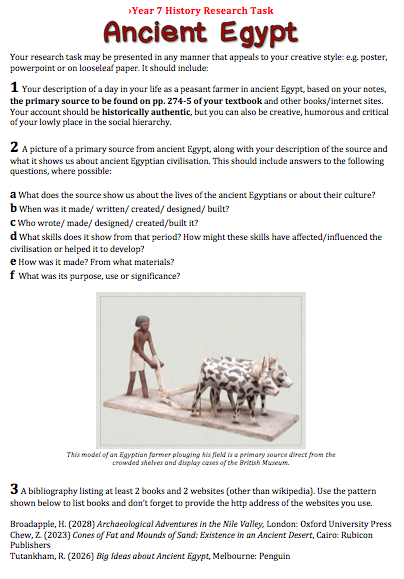
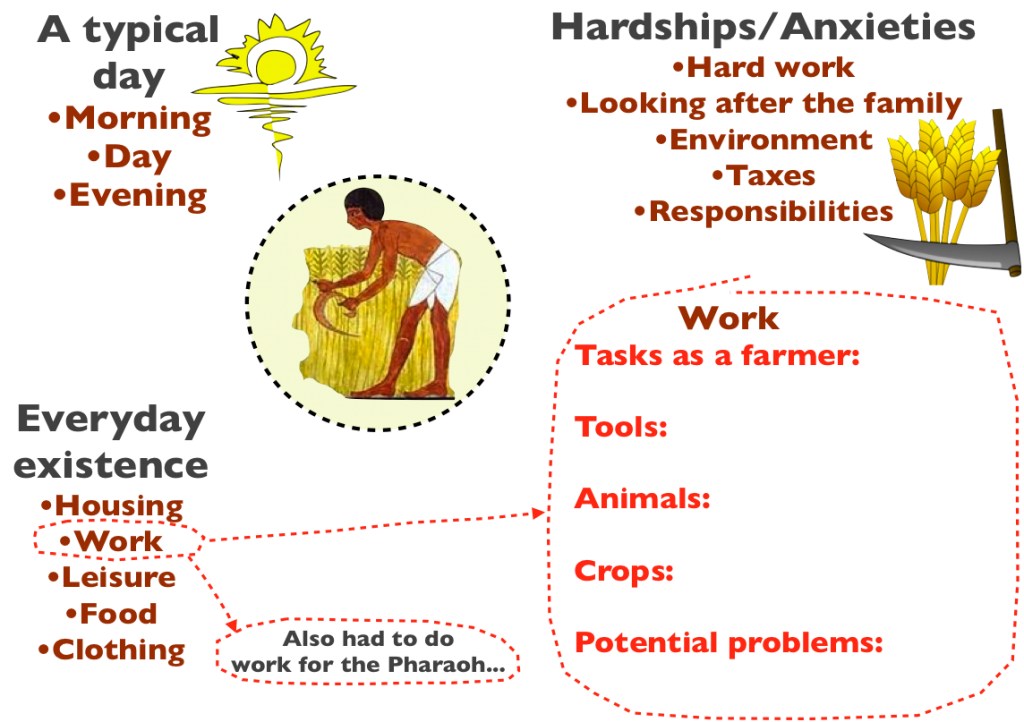
2. Read more and add more headings.
3. Take a single heading and break it into subheadings, as with “Work” above.
4. Add the finer details.
5. Then you’ll be ready to write in sentences, using the dot points you’ve already prepared.
BEGIN BY READING ABOUT THE PEASANTS AT THESE LINKS:
Site 1: PBS Website: A day in the life of an ancient Egyptian peasant
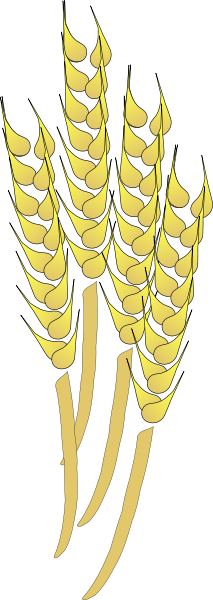
Site 2: Egypt’s Past: http://egyptpast.com/daily-life-in-ancient-egypt.html
Site 3: Ancient Egypt: A farmer’s life in comparison with a noble’s: http://www.ancientegypt.co.uk/life/story/main.html
Site 4: A primary source about farmers and their oxen, with a detailed explanation: http://oi.uchicago.edu/OI/MUS/ED/TRC/EGYPT/farming.html
Site 5: A fascinating (and more challenging) article about the everyday healthy problems of the ancient Egyptians. They probably had a life expectancy of about 40 years, many suffered from arthritis and dental problems and there were other problems associated with the environment of the Nile River: http://www.bbc.co.uk/history/ancient/egyptians/health_01.shtml

